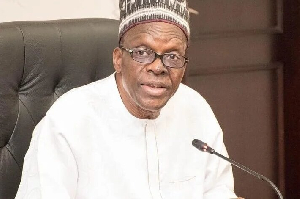ActionAid Ghana (AAG) has called on the government to revise the nation’s tax incentives regime and strengthen the tax system so as to increase domestic revenues for the country's development, especially its investment in education.
The AAG made this call during the report launch on “Tax incentives; what tax incentives can do for basic education in Ghana.”
Ms Maria Ron Balsera, the coordinator for ActionAid International, said Ghana needed extra resources to ensure safe schools and reach a growing number of disadvantaged children.
She urged government to pay attention to education inequalities and increase remote learning, as well as technology in deprived communities.
Ms Balsera said there was a need to consider the overall size of government revenue and the share of the budget spent on education to justify the retrogressions in the education sector.
“We need to increase the 4Ss of the education budgets, which is share, size, sensitivity and scrutiny. Increasing the above will help to ensure that money arrives in practice and also help to know the allocations within education,” she stressed.
The UN has recommended that the minimum tax-to-GDP ratio should be 20% yet, according to the AAG the tax-to-GDP ratio in Ghana was 13%.
Ms Balsera indicated that tax incentives estimated $267.9 million.
According to her, “This money can pay for school places for all children who left out of primary school and the adolescent still left out of lower secondary for one year”.
The coordinator for ActionAid International added that the estimated amount could also cater for the salary of 10,000 newly qualified teachers and provide free meals for 1 million children.
Inadequate financing leading to education partiality
Mr Sumaila Abdul-Rahman, the Country Director for AAG, said education was the foundation for social equity and development. However, he noted that people did not fully enjoy it because of the challenges associated with resources leading to inadequate financing.
He said the cost of education financing was a national issue that required attention.
“Government's expenditure allocation to the education sector falls shy of the Global Partnership for Education (GPE) target of 20%. Considering the fact that Ghana lost $901m to tax incentives through parliamentary tax waivers and the fact that 20% of that amount could have provided more school infrastructure to pupils raises a crucial point that should put things in perspective for all of us,” Mr Abdul-Rahman explained.
He was hopeful that the report becomes a critical advocacy tool to ensure that children in Ghana enjoy their right to Free Compulsory Universal Basic Education.
“Education gives people the avenue to escape the intergenerational cycle of poverty. It levels the playing field for children from all walks of life. This is why public investment in education is crucial,” Mr Abdul-Rahman said.
Privatisation of basic education
Mr Bernard Anaba, the policy analyst at Integrated Social Development Centre (ISODEC), said financing public basic education was increasingly looking unattractive to government as most parents prefer the private schools due to the quality of education offered.
“Privatisation is now supplanting rather than supplementing public education,” he stressed.
Mr Anaba added that private schools continued to see an increase at 9.4% compared to the public schools at 3.8% annually.
“The average national gross enrolment ratio in basic schools is 83.8%. This means we still have more children out of the school boundaries,” he explained.
Mr Anaba urged government to finance public sector education through taxation, adding that domestic resource was the best sustainable way of financing rather than external conditional sources.
“Taxes are the principal sources of revenue to government,” the policy analyst at ISODEC stated.
Mr Anaba indicated that the gap in the resource potential and resource loss through taxes had been established and there was a need for government to do more to access such resources.
He said tax incentives were not necessarily bad so far as they were used in creating jobs and ensuring technology transfer.
Mr Anaba said giving away tax incentives would constitute a violation of the right to education as the state had the obligation to provide free and good quality education.
“Education is the fulcrum of investment in people, hence we must prioritise education for extra budget funding,” he said.
Mr Anaba urged government to prioritise basic school funding as the key foundation for every child.
About the report
The report follows a series of research conducted by Action Aid Ghana focusing on how to leverage domestic taxation for sustainable financing of the education sector, how progressive taxation can increase government's spending on public basic schools and reverse education privatisation.
Click to view details



Business News of Thursday, 19 November 2020
Source: thefinderonline.com

















